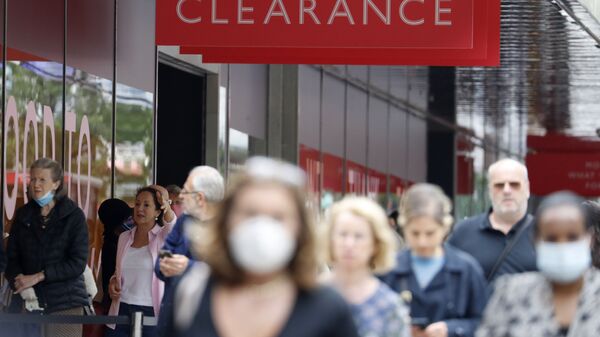Lakshmi Manoharan, a Medical Epidemiologist at the University of Oxford, looks at the effectiveness of local lockdowns in greater detail.
Sputnik: How can authorities make local lockdowns a success?
Lakshmi Manoharan: They can make local lockdown successful by basically ensuring that there is adequate communication with the local community and clear explanation of why the lockdown measures are being implemented. Health authorities should make sure that any increase in case numbers truly reflects a real increase and isn't just a result of more testing. When there is a true increase in cases; people should be communicated and the measures being implemented should be clear. People should know what's allowed and what's not allowed. If local residents need to take time off work or self-isolate at home, authorities should be able to provide the support needed; whether that's income support or other methods of support, such as accommodation assistance. Importantly, a timeframe should be given if possible, if not for ending the local lockdown at least a time for a review of the lockdown and the main emphasis should be on clear messaging.
Sputnik: How long can localised lockdowns be extended for?
Lakshmi Manoharan: It's a good question. It really depends on the local outbreak itself. It's hard to give an exact period of time which might be needed however, we should aim for local lockdowns to be in place with a minimum length of time that they need to be effective. In order to make sure that local lockdowns are as brief as possible, there needs to be a robust testing and tracing system in place. People need to isolate when necessary, follow those rules, and be supported to do that. The whole time there needs to be clarity in the messages which are being sent to the community. Local lockdowns should be lifted when the case numbers continue to drop or when community transmission is reduced based on the number of positive cases in that particular area.
Sputnik: What problems can local lockdowns create for residents/communities and what must we do to overcome them?
Lakshmi Manoharan: Local lockdowns can disproportionately affect certain communities. Lockdowns obviously affect people's livelihoods especially when they can't go to work or open their businesses. Additionally, there's been a lot of research into the larger effects of COVID on minority groups, which can be related to a number of factors and if the reasons for lockdown aren't communicated well this can create a lot of distrust in the community. There are ways to overcome these problems as I mentioned, communication and community buy-in is essential. There needs to be a clear plan for the lockdown and when it will be reviewed. There also needs to be support provided to those who take time off work and are self-isolating. There also needs to be access to key social services during the lockdown period and importantly, authorities need to be culturally appropriate and as supportive as possible.

